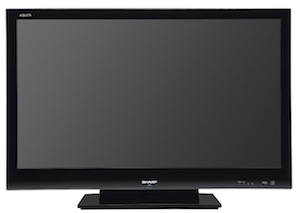Sharp may leave consumer business: report

Sharp, the LCD television maker and consumer electronics maker, is in trouble.

Despite a lucrative contract with Apple to make display screens for the next-generation iPhone, the Japan-based technology giant is slipping and faces continued financial woes.
According to Reuters, Sharp may have "only one option to survive": killing its consumer business and re-emerging as a component maker for Taiwanese partner Hon Hai Precision Industries.
The century-old company has seen its shares lose close to three-quarters of their value since the start of the year, and faces additional costs relating to its burgeoning debt pile. Without the backing of two financial groups, the company may not even exist now.
Much like a 'RIM situation,' Sharp brought in the bankers. They are insisting upon a deal that would push the ailing company closer to Hon Hai and selling off its non-LCD businesses in a bid to raise as much cash as possible.
The trouble is that Sharp has seen less consumer interest in televisions. Samsung remains the market leader, and Sony and Panasonic forged a deal that would lead the companies in a joint venture to take on Samsung. Sharp is left in the dark with nothing more than waning interest and a $198.5 million fine in an out of course settlement over its thin-film-transistor (TFT) display business.
Combined, the three television making giants are set to make 10 million fewer sets than a year before, or a combined loss of $21 billion between Sony, Sharp, and Panasonic according to earlier estimates.
Should a Hon Hai deal go ahead, it would give the Taiwanese firm a greater stake in Apple's supply chain. Hon Hai said it would buy just shy of a 10 percent stake in Sharp for 66 billion yen ($840m) despite its forecasts projecting a continued loss.
The deal is expected to close by the end of March 2013.